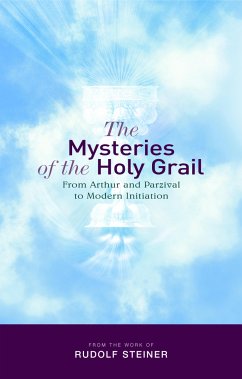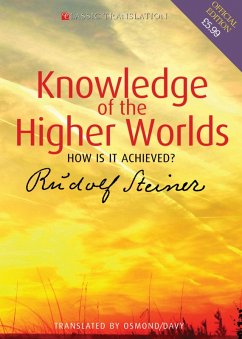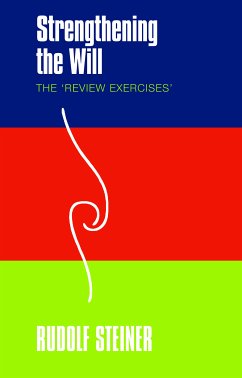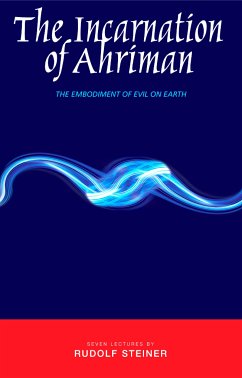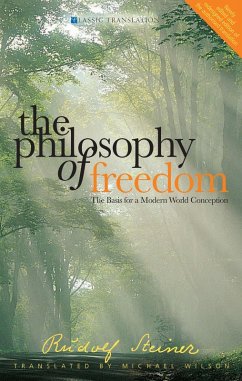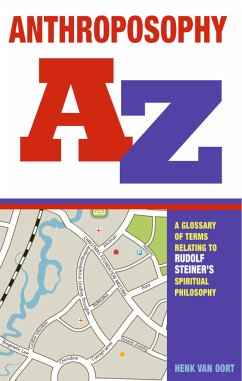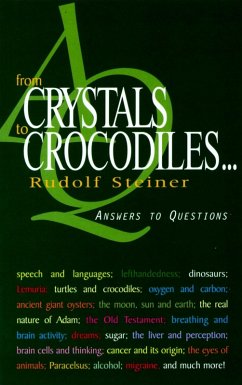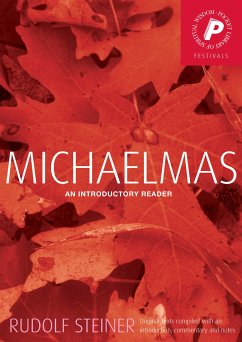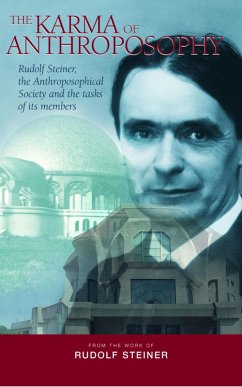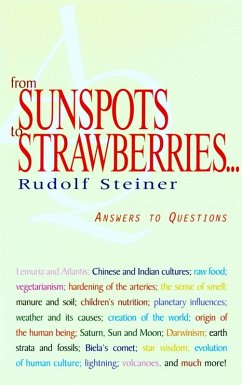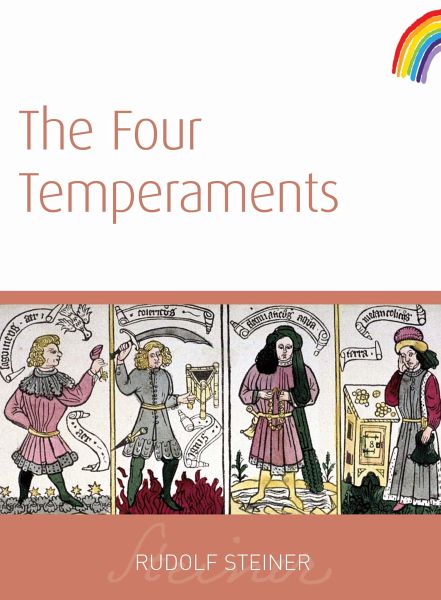
The Four Temperaments (eBook, ePUB)

PAYBACK Punkte
0 °P sammeln!
"The two streams in the human being combine to produce what is commonly known as a person's temperament. Our inner self and our inherited traits co-mingle in it. Temperament is an intermediary between what connects us to an ancestral line and what we bring with us... Temperament strikes a balance between the eternal and the ephemeral..." From personal spiritual insight, Rudolf Steiner renews and broadens the ancient teaching of the four temperaments. He explains how each person's combination of temperaments - with one usually uppermost - is shaped. Steiner gives lively descriptions of the pass...
"The two streams in the human being combine to produce what is commonly known as a person's temperament. Our inner self and our inherited traits co-mingle in it. Temperament is an intermediary between what connects us to an ancestral line and what we bring with us... Temperament strikes a balance between the eternal and the ephemeral..." From personal spiritual insight, Rudolf Steiner renews and broadens the ancient teaching of the four temperaments. He explains how each person's combination of temperaments - with one usually uppermost - is shaped. Steiner gives lively descriptions of the passive, comfort-seeking phlegmatic, the fickle, flitting sanguine, the pained, gloomy melancholic and the fiery, assertive choleric. He also offers practical suggestions aimed at teachers and parents for addressing the various manifestations of the temperaments in children, as well as advice intended for adults' personal development.
Dieser Download kann aus rechtlichen Gründen nur mit Rechnungsadresse in A, B, BG, CY, CZ, D, DK, EW, E, FIN, F, GR, H, IRL, I, LT, L, LR, M, NL, PL, P, R, S, SLO, SK ausgeliefert werden.




